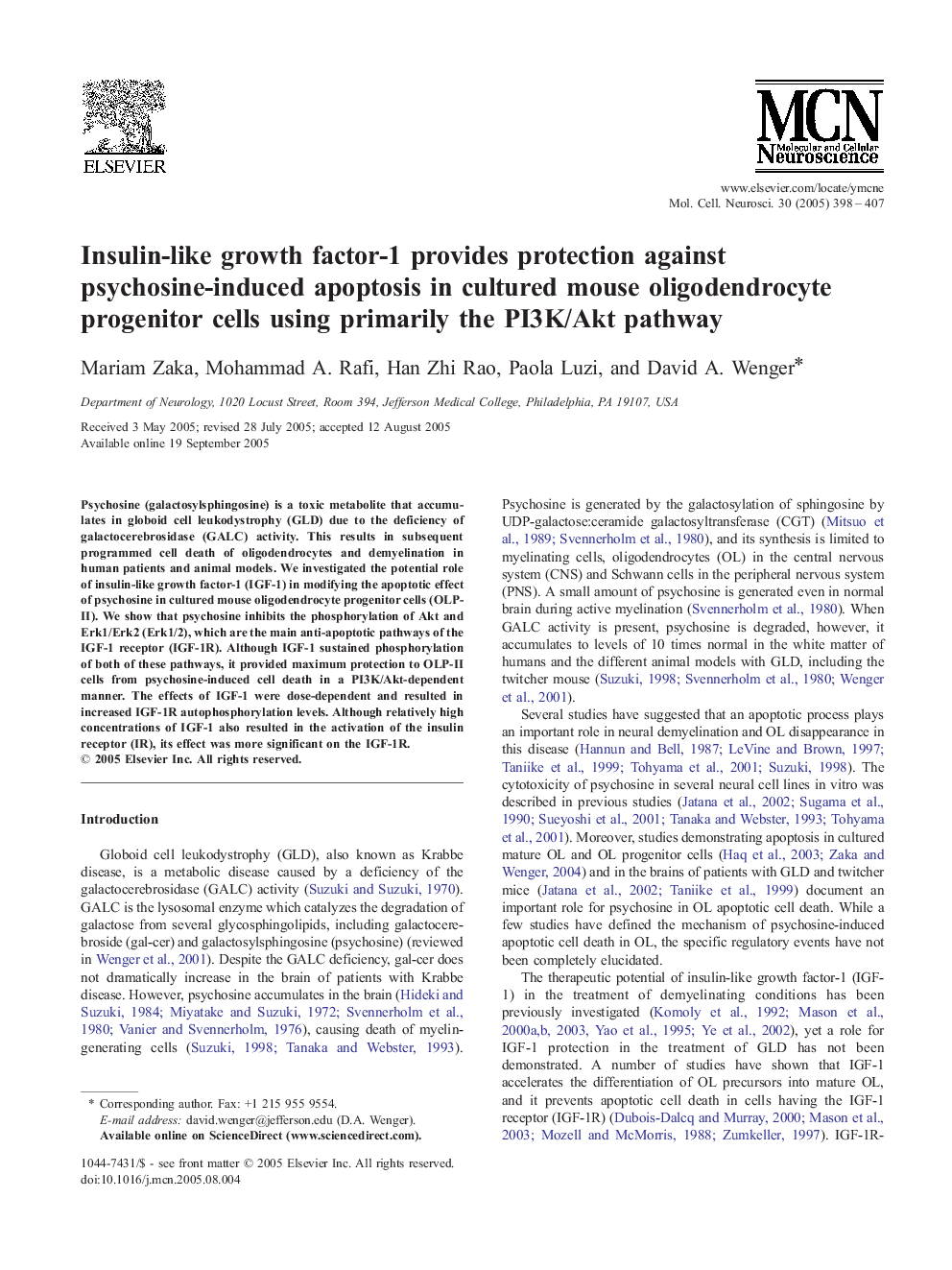| Article ID | Journal | Published Year | Pages | File Type |
|---|---|---|---|---|
| 10956808 | Molecular and Cellular Neuroscience | 2005 | 10 Pages |
Abstract
Psychosine (galactosylsphingosine) is a toxic metabolite that accumulates in globoid cell leukodystrophy (GLD) due to the deficiency of galactocerebrosidase (GALC) activity. This results in subsequent programmed cell death of oligodendrocytes and demyelination in human patients and animal models. We investigated the potential role of insulin-like growth factor-1 (IGF-1) in modifying the apoptotic effect of psychosine in cultured mouse oligodendrocyte progenitor cells (OLP-II). We show that psychosine inhibits the phosphorylation of Akt and Erk1/Erk2 (Erk1/2), which are the main anti-apoptotic pathways of the IGF-1 receptor (IGF-1R). Although IGF-1 sustained phosphorylation of both of these pathways, it provided maximum protection to OLP-II cells from psychosine-induced cell death in a PI3K/Akt-dependent manner. The effects of IGF-1 were dose-dependent and resulted in increased IGF-1R autophosphorylation levels. Although relatively high concentrations of IGF-1 also resulted in the activation of the insulin receptor (IR), its effect was more significant on the IGF-1R.
Related Topics
Life Sciences
Biochemistry, Genetics and Molecular Biology
Cell Biology
Authors
Mariam Zaka, Mohammad A. Rafi, Han Zhi Rao, Paola Luzi, David A. Wenger,
